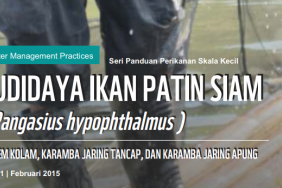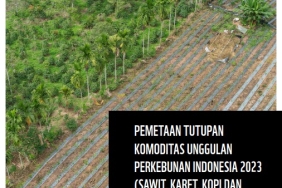Financial Solutions to Accelerate Green Shift in Light Industries
Jakarta, June 30 – WWF-Indonesia, in collaboration with the Climate Bonds Initiative (CBI), released a new study titled “Financing Decarbonization in Commercial and Light Industry Supply Chains”. The report aims to provide actionable solutions for financial service providers to support medium-scale businesses in achieving their decarbonization targets. As net-zero commitments intensify among anchor buyers, investors, and financial institutions, businesses are increasingly expected to adopt emission reduction measures and implement sustainable practices.
Light industries—such as textiles, footwear, food and beverages, and hospitality—generate approximately 1.025 gigatons of CO₂e emissions globally (2019 estimate), accounting for about 8% of global greenhouse gas emissions—more than the combined emissions from the aviation and shipping sectors. In Indonesia, light industries employ around 4.5 million workers, making it a crucial sector that deserves policy attention to maintain competitiveness.
Recognizing the strategic importance of this commercial segment, WWF conducted in-depth research involving 43 stakeholders in Indonesia and Vietnam. These included textile and footwear suppliers, the hospitality industry, energy services companies (ESCOs), banks, development finance institutions (DFIs), and associations such as the Indonesian Chamber of Commerce and Industry (KADIN) and the Indonesia Sustainable Finance Initiative (ISFI).
The study found that companies bound by greenhouse gas emission reduction targets from anchor buyers typically fall into two categories: medium-scale firms with annual revenues between USD 10–30 million, and large-scale firms with annual turnover of more than USD 100 million.
“These suppliers contribute 70–90% of the anchor buyers’ emissions. Yet, medium-sized businesses face significant challenges in technical capability and financial access. This study offers possible solutions that can be developed by the financial sector,” said Irfan Bakhtiar, Director of Climate and Market Transformation at WWF-Indonesia.
ESCOs play a critical role in supporting this segment’s transition, particularly in two key areas: helping companies set decarbonization priorities and in shifting upfront capital expenditures (capex) into operational expenditures (opex) through leasing mechanisms.
“ESCOs can help address key challenges, but most domestic ESCOs are relatively new entrants with limited financial capacity and track records. These themselves still need financing, yet green financial facilities tailored to this segment are not widely available,” said Rizkia Sari Yudawinata, Sustainable Finance Advisor at WWF-Indonesia and co-author of the study.
“The study also highlights the need for innovation to address common financing barriers such as the onerous energy audits and high collateral requirements. This study suggests some possible pathways, such as simplifying energy audit standards to significantly lower costs for prospective borrowers,” she added.
Wider adoption of credit guarantee schemes—like those developed by the Green Climate Fund in partnership with the Korea Development Bank—can help address the collateral constraints faced by medium-scale companies. As technological solutions for decarbonization in light industries are simpler than those in heavy industries such as steel, cement, or fertilizer, innovations in collateral structures can help unlock more green financing for Indonesia’s light industrial sector.
Creative financing solutions will enable domestic banks to tap into the enormous potential of green financing. The addressable market for green financing reaches USD 600 billion globally, with financial institutions needing to mobilize around USD 44 billion per year through 2030.
The “Financing Decarbonization in Commercial and Light Industry Supply Chains” report was supported by the Climate Solutions Partnership (CSP), a philanthropic collaboration between WWF, HSBC, and WRI from 2020 to 2025, aimed at scaling up climate solutions. As part of this, the CSP Energy Transition supported the shift towards renewable energy in Asia by combining our resources, knowledge and insight. (ism)




